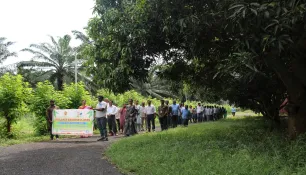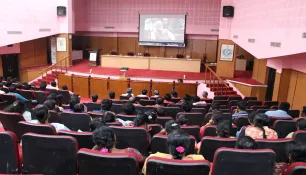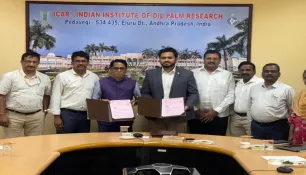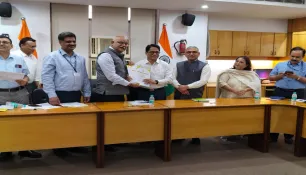Entomology laboratory
The entomology laboratory is engaged in research on ecofriendly pest management tactics in oil palm using biocontrol agents. Isolation and identification of potent and native entomopathogenic fungi and bacteria strains against major insect pests of oil palm is underway. Isolation was done using naturally infected samples of pests or from native soils of oil palm plantations. Bioassay studies, biological safety and characterization of the isolates are going on.
Additionally, rearing and maintenance of insect cultures (bagworm, rhinoceros beetle etc.), seasonal variation in pest incidences to support ongoing research and experiments is a regular activity. Evaluation of novel chemical pesticides against diverse pest species of oil palm along with dose of application is done to forewarn oil palm growers.
The team also ensures the maintenance of plant protection equipment, such as sprayers, to guarantee their optimal performance. Studies on oil palm pollinator, Elaeidobious kamerunicus is also going on in respect of seasonal variations and sex ratios etc to determine their peak activity periods.
Studies on estimating the population requirement for getting effective fruit set is also ongoing. Mass multiplication of biocontrol agents against different insect pests including whiteflies, bagworms, Rhinocerous beetles is also done for supply to farming community. These comprehensive activities collectively contribute to sustainable and effective pest management solutions and conservations of pollinators.
Pathology laboratory
The plant pathology lab dedicated to development of integrated disease management practices for oil palm diseases primarily focuses on isolating and identifying major pathogens that affect oil palms at both nursery and field stages.
To facilitate ongoing research, the lab maintains a collection of culture deposits for key oil palm pathogens as well as beneficial bioagents.
For accurate pathogen identification, the lab employs both morphological and molecular techniques: morphological analysis involves examining a pathogen’s structure microscopically, while molecular methods like DNA-based identification enable precise genetic profiling.
In addition, the lab is engaged in the mass multiplication of mother cultures of beneficial bioagents, such as Trichoderma fungi and Bacillus bacteria, which naturally help control diseases like Basal Stem Rot (BSR).
To make these bioagents field-ready, the lab develops and supplies mother culture solid and liquid bioformulations.
The lab also emphasizes farmer-friendly methods by developing large-scale mass multiplication techniques using neem cake, a readily available and sustainable substrate.
Furthermore, it creates various delivery systems to effectively administer bioagents and fungicides, ensuring optimal application in diverse field conditions.
For disease detection, the lab utilizes PCR and advanced tools like Recombinase Polymerase Amplification (RPA) combined with Lateral Flow Assay (LFA). This RPA-LFA approach provides a rapid, portable, and reliable way to detect BSR pathogens, allowing for timely and proactive disease management.











